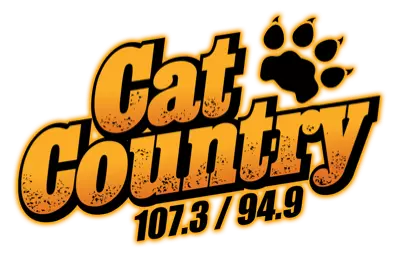![Bellamy Brothers, Gene Watson + 50 Years of Risk Taking [Interview]](https://townsquare.media/site/204/files/2024/02/attachment-Gene-Watson-Bellamy-Brothers.jpg?w=980&q=75)
Bellamy Brothers, Gene Watson + 50 Years of Risk Taking [Interview]
Singers and songwriters who walk a thin, bold line will meet the Bellamy Brothers.
David and Howard Bellamy are self-described outcasts, although one detects a hint of pride to it.
“We’re at the point where we do what we damn please,” Howard tells Taste of Country during a half-hour sit-down with Gene Watson.
And we were just talking about the new music!
“I’m just extremely flattered," Watson adds with a level of humility that masks his own envelope-pushing nature. "I’ve always admired what (the Bellamys) do ... I thought for me being a straight-ahead traditional country singer, to blend in with that, who knows? It could be real good for both of us."
He's talking about "Forever Ain't Long Enough," their collaborative recording and music video released on Valentine's Day. The original song is a David Bellamy write that appeared on Reality Check in 1990, but never got radio airplay.
Howard, the older of the two brothers, laments that. Both men enjoy recalling how the Jordanaires sang backing vocals and how a young Vince Gill added high harmonies elsewhere on the album.
"We were just saying we were gonna get a real country song released, but they never would do it for some reason or another," he says.
The more mainstream "I Could Be Persuaded" was the album's only single. It became the pair's final Top 10 hit, and within the year, they'd create their own independent Bellamy Brothers Records label.
"People have actually said, “The Bellamys started rap in country music.” I was making fun of it. I don’t like rap. That song was a joke. We did it as a joke."
Watson's career was in a similar place at a similar time. The Texas-based hitmaker notched nearly 20 Top 10 singles between 1975 and 1990, including back-to-back pearl-clutchers, "Love in the Hot Afternoon" and "Where Love Begins."
Conservative fans of the format hollered about morality and sin as each burning love song raced up the chart. One imagines the same people showed up to picket a Gene Watson show and later a Bellamy Brothers concert as they prepared to perform "If I Said You Have a Beautiful Body Would You Hold It Against Me."
"In many ways, things have progressed, but in many ways, things have regressed," Howard Bellamy says.
The full interview — with stories about Elvis Presley, Gill and more — can be heard during this episode of Taste of Country Nights, On Demand.
Below are extended highlights from the conversation.
(To the Bellamy Brothers) We recently made a video of the most under-appreciated classic country artists, and you guys were included. Do you think you’ve contributed enough to be inducted in the Country Music Hall of Fame?
David Bellamy: I don’t know. I don’t even guess at the Hall of Fame or any of that.
HB: We don’t lose a lot of sleep over it. I wouldn’t want any more work than we do today.
DB: I think we ought to get Gene in.
Gene Watson: I always tell people I don’t lose any sleep over it, but if they’re gonna put me in there, I hope they do it while I’m alive. (All laugh).
HB: Yeah, because there may be a few fringe benefits to doing that. You could take advantage of it when you’re still alive.
The Bellamy Brothers have been nominated 29 times for ACM and CMA Awards, but never won one. Do you hold a grudge?
DB: I think they might hold a grudge against us. (Laughs). I think — we were talking about this a little bit earlier — I think we’ve always been a part of country music, but we’ve never been —
HB: In the clique. There is a clique. You know, we live in Florida, we’re kind of somewhat outcasts even though, with the artists themselves we’ve always had a great relationship, which means more than any organization.
DB: We’ve got lots of friends here and a lot of friends in the industry, but we’ve never been available or accessible all the time. We worked internationally a lot in our career. Howard and I got a call one time to be on the (The Tonight Show With Johnny Carson). They wanted us on there that night because “Let Your Love Flow” was the No. 1 BMI —
HB: They thought we were in L.A. But we were in Norway.
DB: And we both have the flu and there were no flights out.
HB: So we missed a lot of good opportunities.
Related: 50 Greatest Class Country Artists
Watson: The Bellamys were a lot like I was in that respect. I’m out of Texas and I never moved to Nashville, so I wasn’t a part of what was going on here. I guess it hurt me in a lot of ways, but there again, when I’d come up here I would kind of bring Texas and Gene Watson with me.
You were ahead of the game with songs like “Country Rap.” Do you think the response would be the same if it was put out now?
DB: People have actually said, “The Bellamys started rap in country music.” I was making fun of it. I don’t like rap. That song was a joke. We did it as a joke.
Because rap was coming out and we were going, “Oh yeah, this will last for 10 minutes.” There were country guys doing what they used to call talking blues. (To Gene) I’m sure you remember. That was way before rap. It’s not a new genre really.
"Old Hippie" was a No. 1, maybe even your career song. Do you think people would be afraid to write and record that today?
HB: In many ways things have progressed, but in many ways, things have regressed. It’s weird, but “Old Hippie” was very good to us. We actually have a medical marijuana deal in the state of Florida … the Old Hippie stash.
There’s a lot of hippies. People don’t realize it. A lot of wanna-be hippies. Closet hippies. (Laughs)
What was the immediate response to that song?
DB: It was really good. I was surprised. I wasn’t gonna cut the song. I had played it for Howard, and he said, “We gotta do that.”
HB: We took it to Jimmy Bowen, and he was a closet hippie, and we didn’t know it.
DB: We used to bring Bowen weed to mellow him out before a meeting.
HB: Then he wouldn’t lie to you. (All laugh).
Watson: But you know, throughout your career, there’s times you have to step out on the edge and take a chance. Like “Love in a Hot Afternoon” was the song that got me my first major recording contract. We recorded that in 1974, and you think I wasn’t getting close to the edge singing about tangled sheets?
HB: Oh, I bet. That was edgy.
Watson: The song had been recorded like seven times before that … and the song didn’t do nothing. I decided I was gonna sing it just like it was written.
DB: Like Howard was talking about, in that era you could have deeper lyrics than you can now. Now things are more suppressed in other eras. Mel Willis had “I got the horse and you got the saddle” and Tipper Gore came out and was on his butt and ours because we did “Beautiful Body.” They were trying to ban lyrics like that.
Howard: We got mentioned on Meet the Press because of that.
If "If I Said You Had a Beautiful Body Would You Hold It Against Me" was put out today, would people try to cancel you?
DB: Probably.
HB: Probably. (Laugh)
Watson: I had "Where Love Begins." Jeannie Seeley called me that day and said, "I was playing that song on my show, and I just figured out what that song is."
Gene, you almost didn't record your No. 1 hit, "Fourteen Carat Mind."
Yeah, it was the last song I was gonna record on an album. I listened to, literally, songs until my ear was falling off, and that was down at the bottom of the box. This was during the cassette days, and when I got to it, it was on a 7-inch reel. I had to drag out the old recorder and thread it up and all that.
Dallas Frazier was doing the demo on it — he wrote it, of course. I knew I'd found my song. We went it, Pig Robbins and me, we hammered out a No. 1 with it.
50 Classic Country Artists Today’s Fans Should Know
Gallery Credit: Billy Dukes




